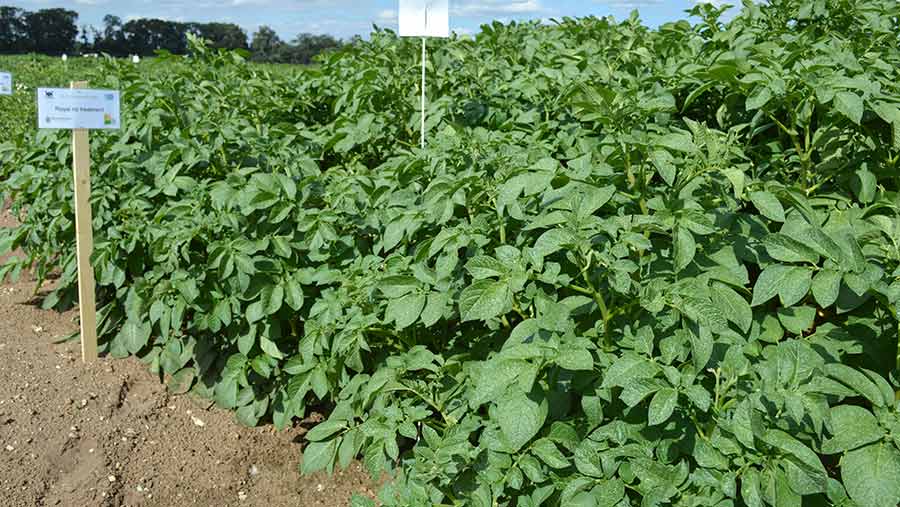
Three potato varieties show more tolerance to nematodes - farmers weekly
- Select a language for the TTS:
- UK English Female
- UK English Male
- US English Female
- US English Male
- Australian Female
- Australian Male
- Language selected: (auto detect) - EN
Play all audios:

The Royal potato variety shows good tolerance to potato cyst nematode © Tim Scrivener Newer potato varieties such as Royal, Lanorma and Iodea are showing useful levels of resistance to the
spud industry’s biggest pest problem, potato cyst nematode (PCN). Graham Tomalin, agronomist at consultant VCS Potatoes, picked these three varieties as the industry looks towards more
tolerant and resistant varieties, and so counter the threat of yield losses from PCN. “I believe that varietal resistance is the best way forward for potato growers,” he tells _Farmers
Weekly_. See also: Potato yields and soils improved by green waste compost on Norfolk farm An estimated 64% of potato land is infected with PCN and growers can deal with this problem by
extending rotations and the use of nematicides, but he believes the varietal route is the best way forward. TWO SPECIES There are two species of PCN, Globodera rostochiensis and Globodera
pallida_, _with the latter becoming more widespread due to its prolonged hatching period and the cultivation of many varieties that are resistant to_ _rostochiensis but susceptible to
pallida. The Maris Peer variety showing damage from potato cyst nematode This increased prevalence, together with the threat to the continued use of some nematicides, has led to an increase
in the need for varieties offering tolerance and/or resistance to pallida. Mr Tomalin defines the difference between tolerance and resistance as: * A tolerant variety is one that will yield
in the presence of PCN but has no effect of the multiplication of the pest. * A resistant variety is one that may not yield but which will have an effect on the multiplication of the pest.
He describes the three varieties in terms of tolerance and resistance as: * Royal – has good tolerance and some partial resistance. * Lanorma – has average tolerance and some partial
resistance. * Iodea – looking as if it will have above average tolerance and looking like it will have good resistance. Andrew Francis © Tim Scrivener VARIETY TRIALS Mr Tomalin is testing a
number of varieties in a trial at Elveden Estate in Suffolk, and points out processing variety Royal is become quite popular with growers, Lanorma is being grown more widely for the pre-pack
market, while Iodea is a newer variety aimed at the salad market. These three varieties look the most hopeful from a group of new varieties in trial when compared with four older standard
varieties – Cara, Maris Piper, Eurostar and Innovator, he says. The first two – Royal and Lanorma – are now being grown commercially on the light land Elveden Breckland estate and farms
director Andrew Francis says both varieties are likely to be useful in coping with PCN. His PCN control strategy for the 480ha of potatoes he manages on the 3,400ha arable estate is: *
Sample soils * Use bio-fumigants where possible * Varietal selection * Use of nematicides. ------------------------- _Mr Tomalin and Mr Francis were speaking to Farmers Weekly at a recent
Strategic Potato Farm East field day at Elveden this month._
